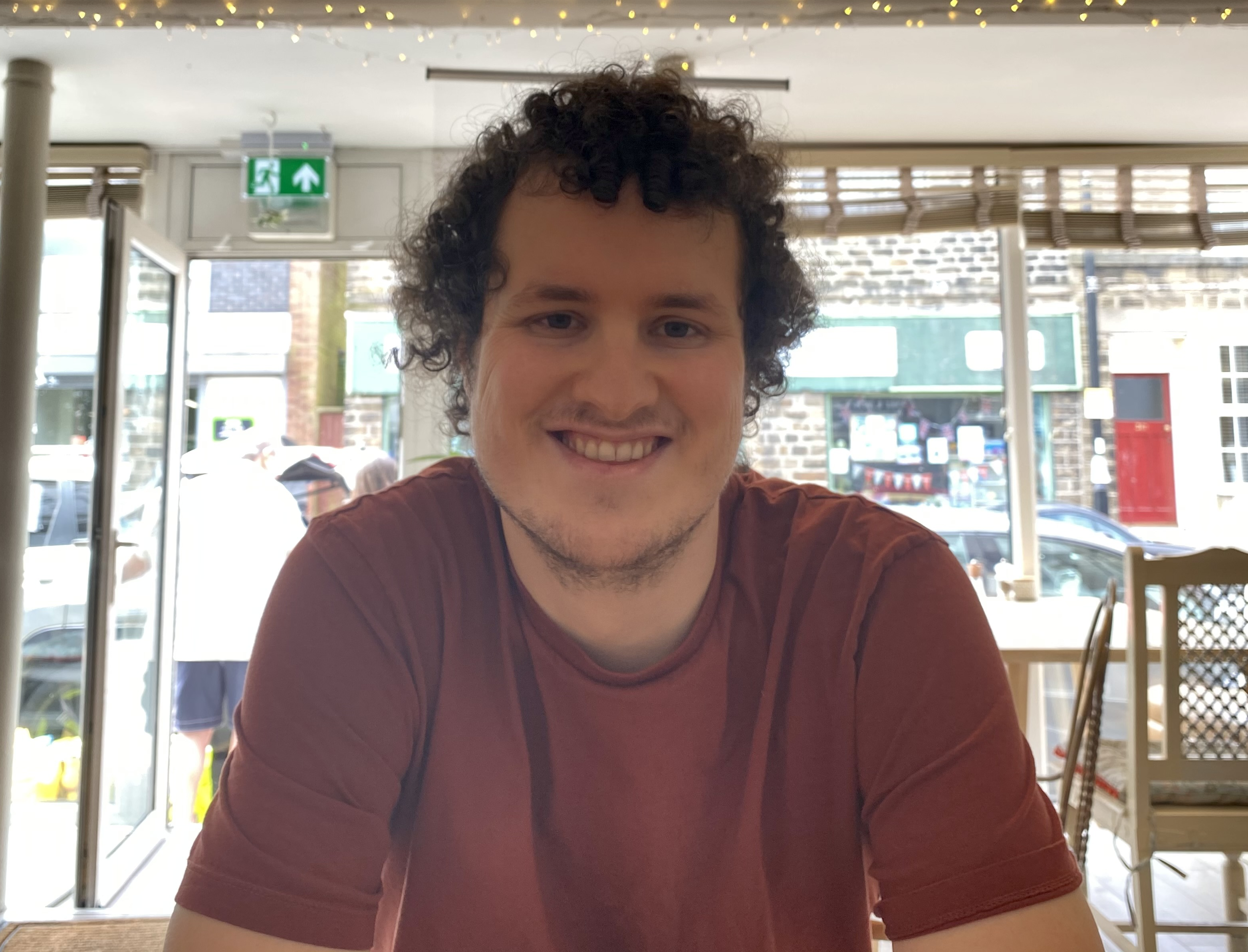A Plague Tale: Requiem is Asobo's challenger to Sony's action-adventure crown
Big in 2022: The maker of Microsoft Flight Simulator plans to prove itself twice over with a moving medieval sojourn
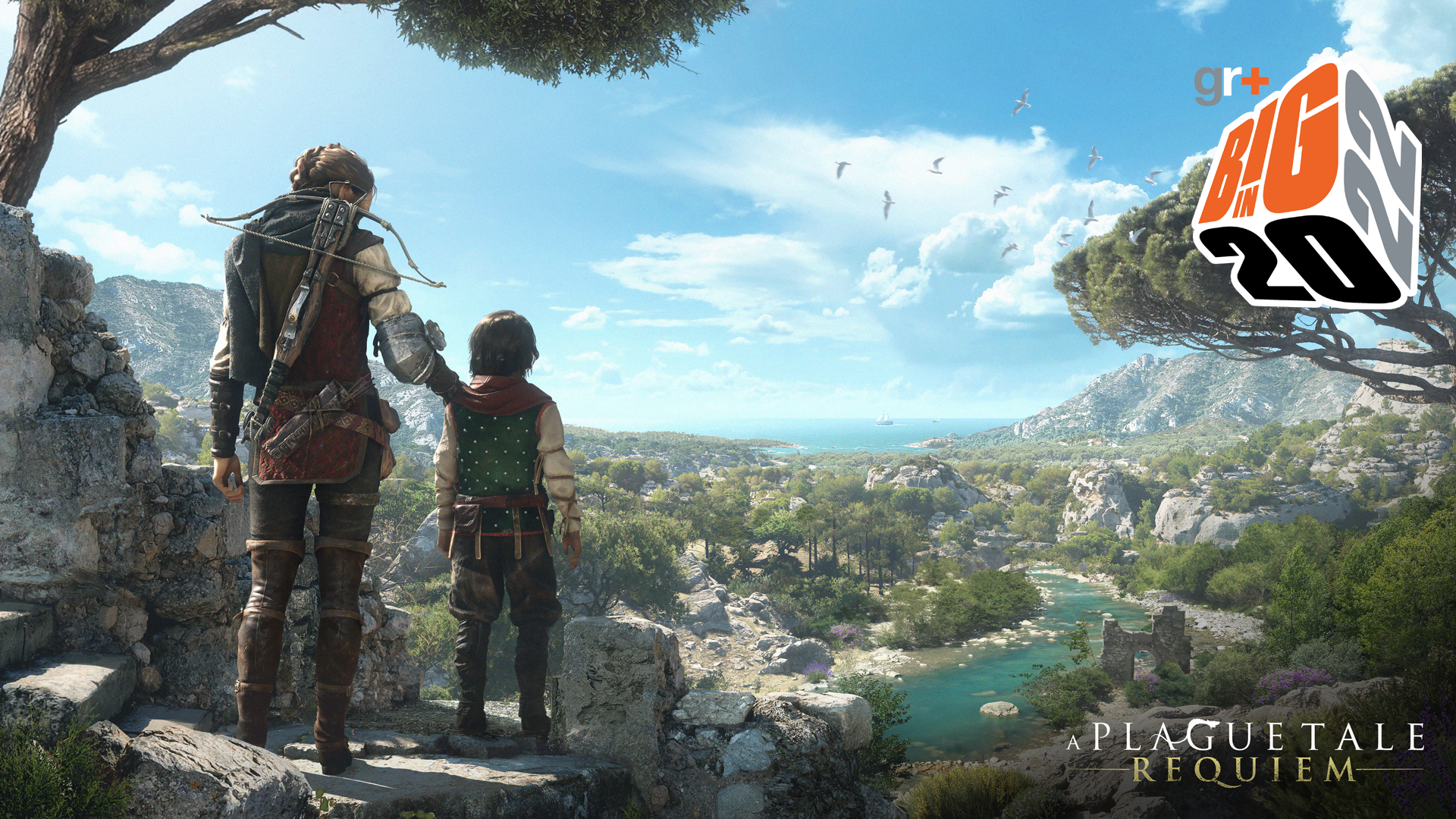
Throughout the last generation, Sony reinforced the PS4's prime position with a particular kind of first-party game. You know the one: narrative-driven, third-person, parable of brutality, sad dad and his lad. Of course, reductive descriptions don't change the fact that these are tough games to make well. If it was easy to pump out a God of War or Last of Us, then Sony's competitors would have been doing just that since 2014.
Which makes it something of a puzzle that Xbox hasn't acquired Asobo Studio yet. Not only did the Bordeaux developer handle Microsoft Flight Simulator's breathtaking reboot, but in 2019 it put out a world-class adventure in the mode of Naughty Dog – A Plague Tale: Innocence.
Swarmer climes
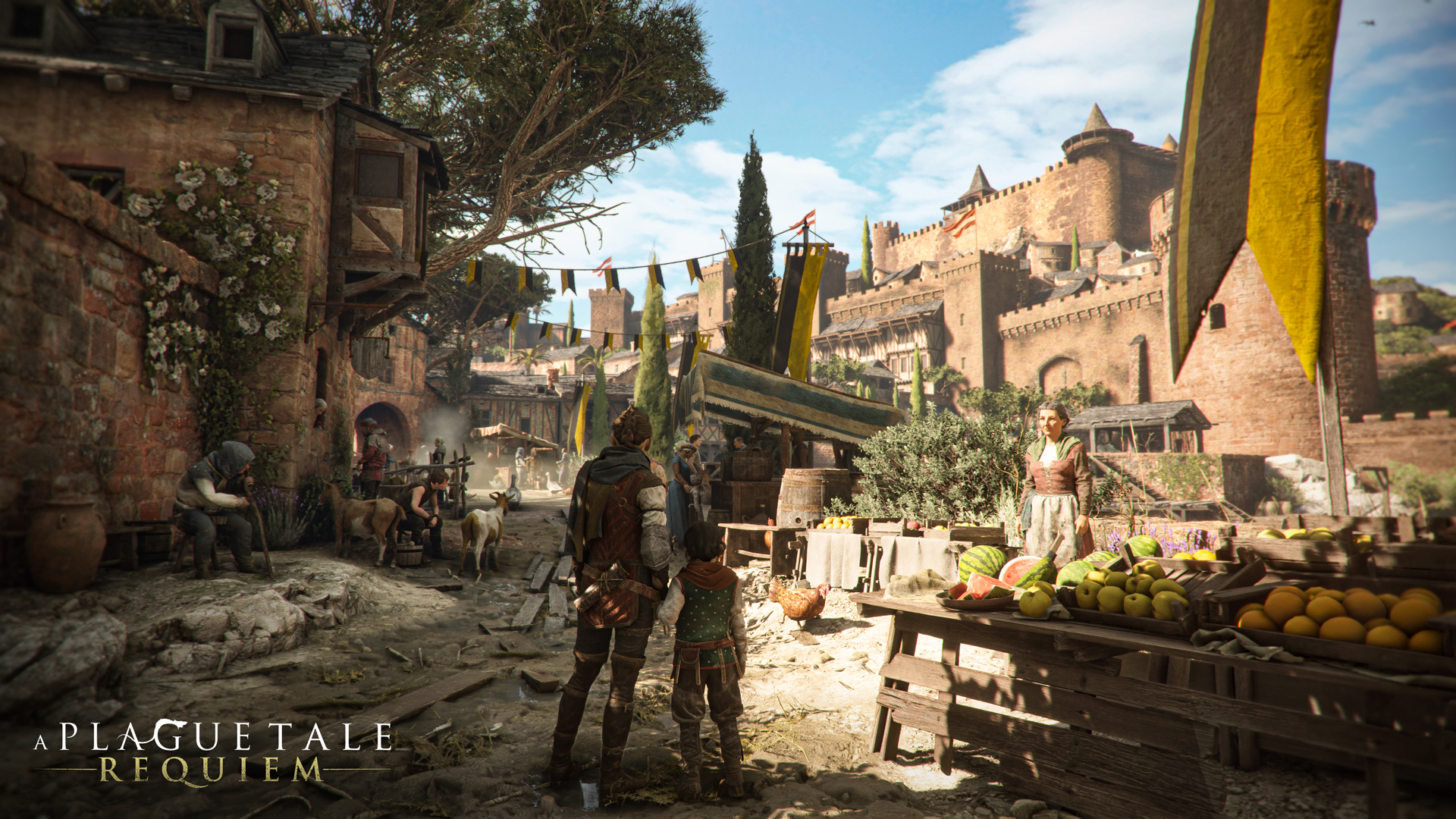
It was a dramatic step up for a studio that had, until then, subsisted as a trusted support studio and adapter of Disney movies into platformers. In many ways A Plague Tale recalled Naughty Dog's own mid '00s ascension, from Jak and Daxter to Uncharted: Drake's Fortune, and leaned on many trusted Naughty Dog tricks: scrappy stealth, character-led spectacle, and very specifically, pushing back a tide of encroaching critters with a flaming torch.
That it was derivative didn't matter much when the results were so self-assured, and the setting unique: a fictionalised 14th century France shredded by the plague, the marauding English, and a secretive Inquisition – think the FBI with swords. At all times, Asobo focused its adventure by centering the camera on teenage protagonist Amicia – a sheltered noble's daughter desperately steering her young brother, Hugo, through a nationwide nightmare.
As the action became increasingly absurd, threatening to carry A Plague Tale's plot away with the rats, Asobo stuck fast to Amicia and Hugo. It's a sound philosophy: do right by your characters, and they'll do right by you in return, ensuring every emotional beat lands the right way up. That same philosophy is cause for confidence in the 2022 sequel: A Plague Tale: Requiem.
Requiem was revealed at E3 2021 with an image familiar to those who finished its predecessor: rats flowing down a festering medieval street like a liquid, the swarm climbing the walls and tipping back onto itself like a wave crashing against a cliff. But the trailer ends with a markedly different sight: Hugo standing on the real rocks of what is unmistakably the Mediterranean, represented by a shining blue sea, palette swap from mud to sand, and trees clinging to the cliffside like goats.
This is the backdrop to Amicia and Hugo's new adventures, though they probably wouldn't describe their repeated trauma during a supernatural plague as 'adventure' themselves. After escaping their homeland, the pair have looked south to start a new life together – taking in new regions and striking cities. The vibe recalls Dishonored 2's Karnaca, an open-air shoreside destination that could be beautiful, soothing even, were it not rotting in the sun.
Sign up to the GamesRadar+ Newsletter
Weekly digests, tales from the communities you love, and more
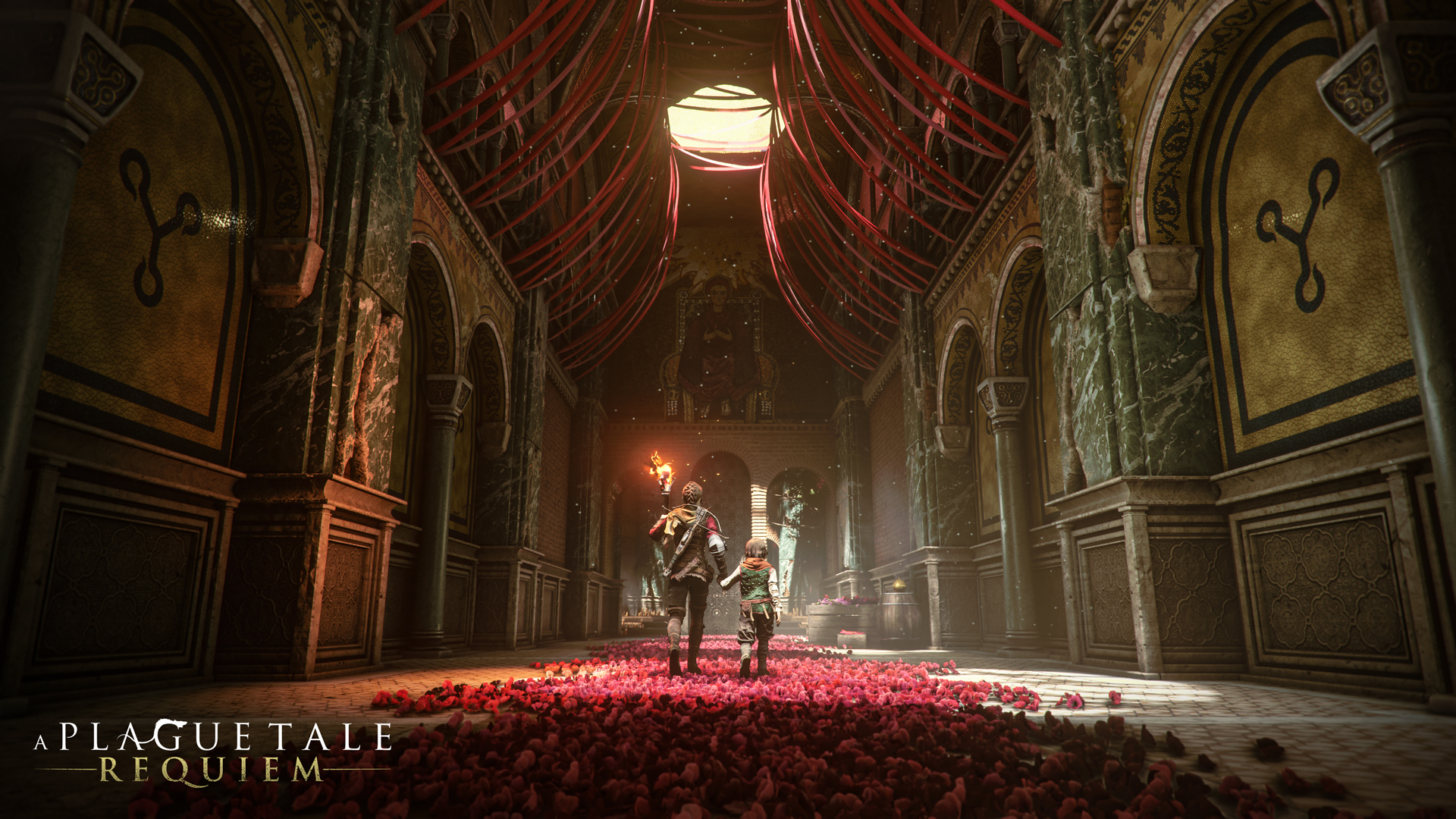
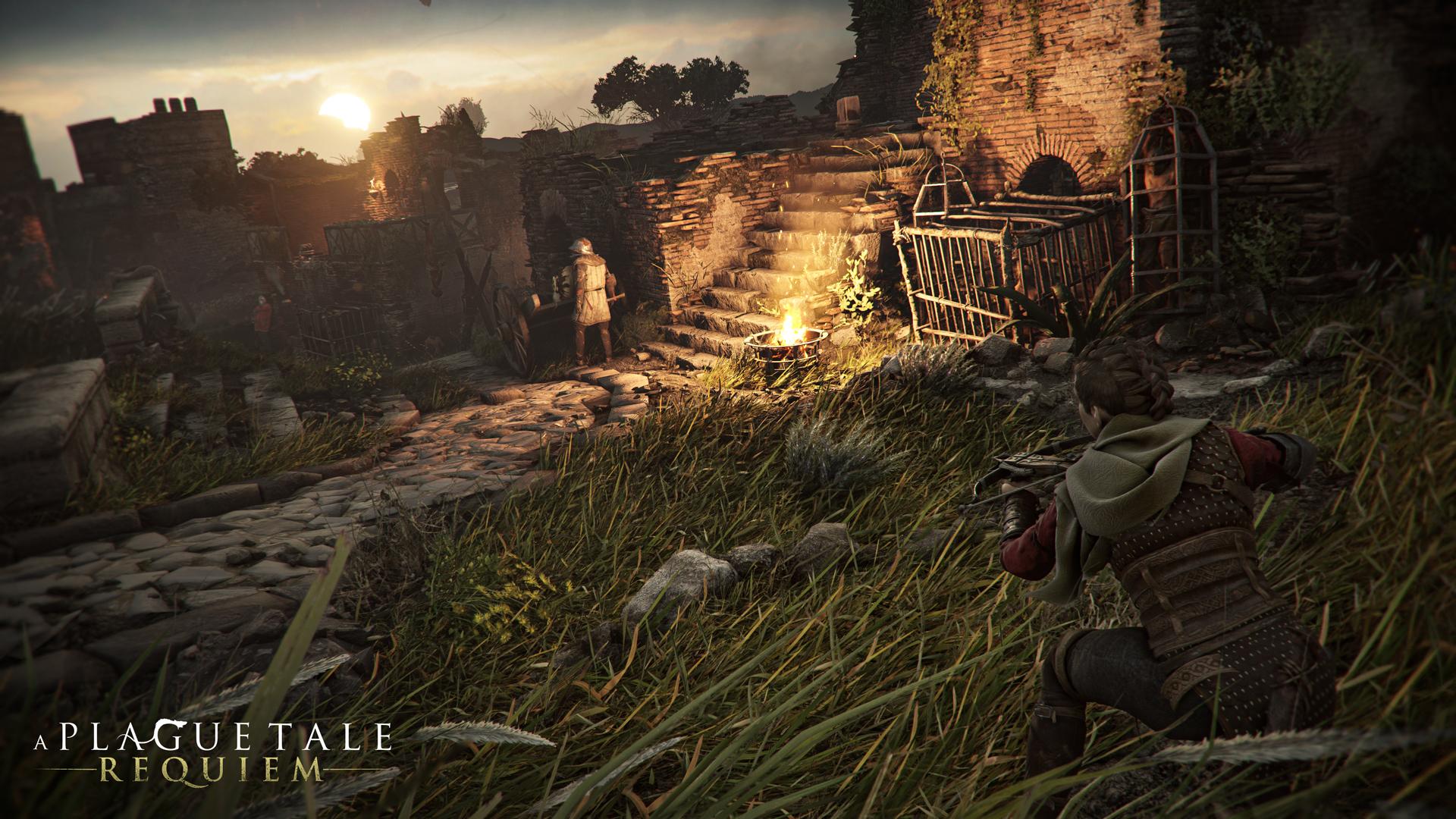
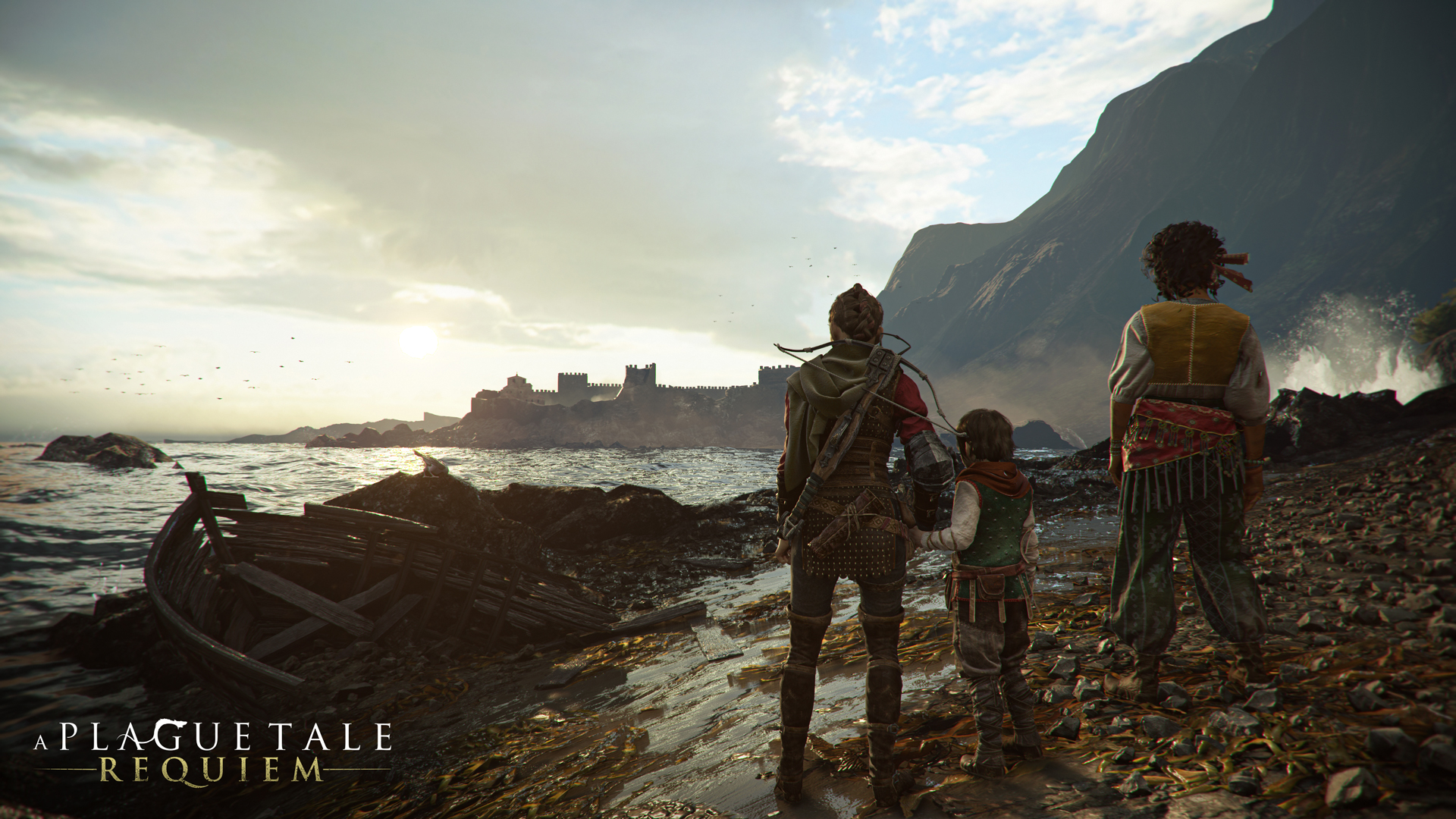
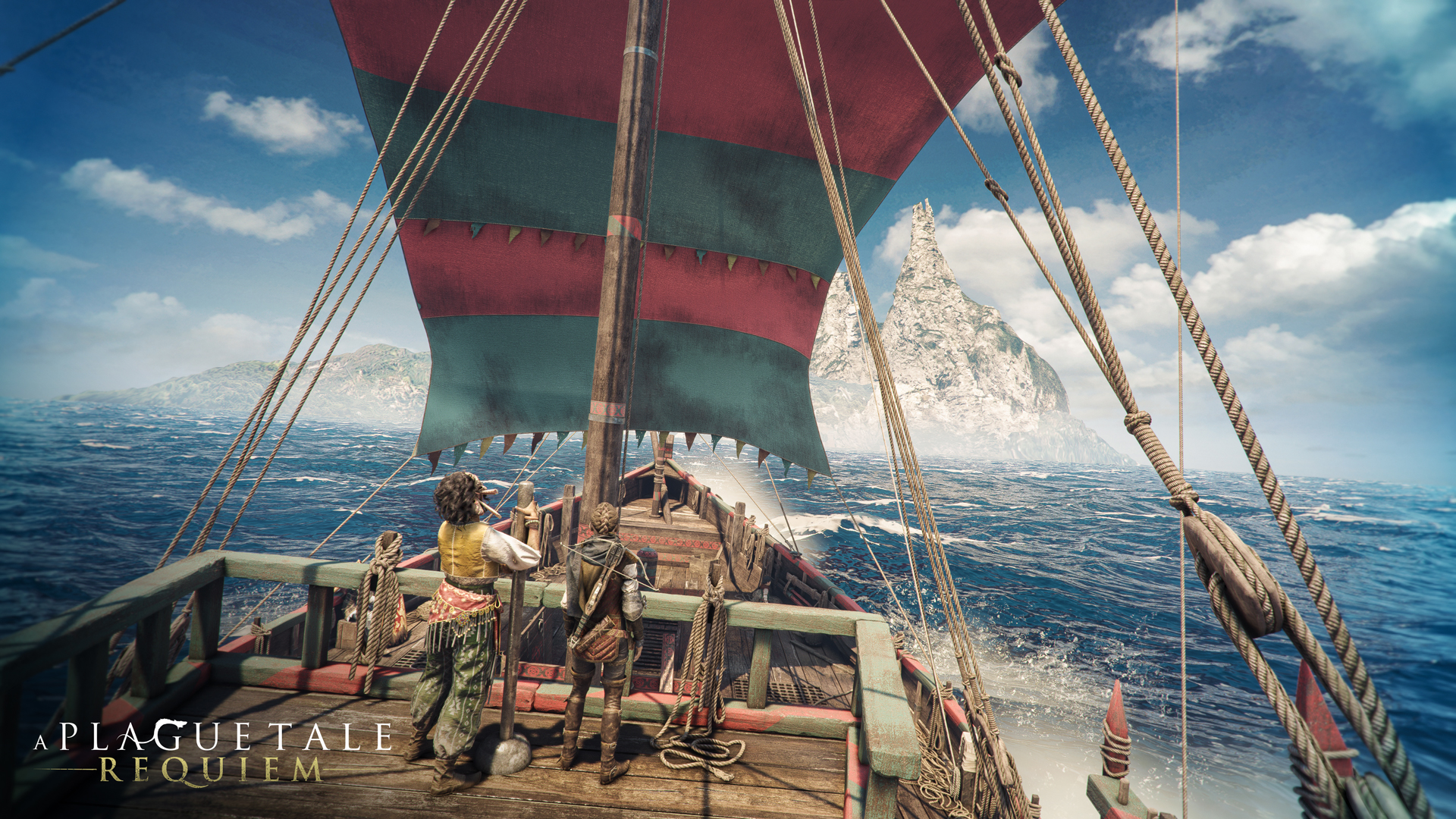
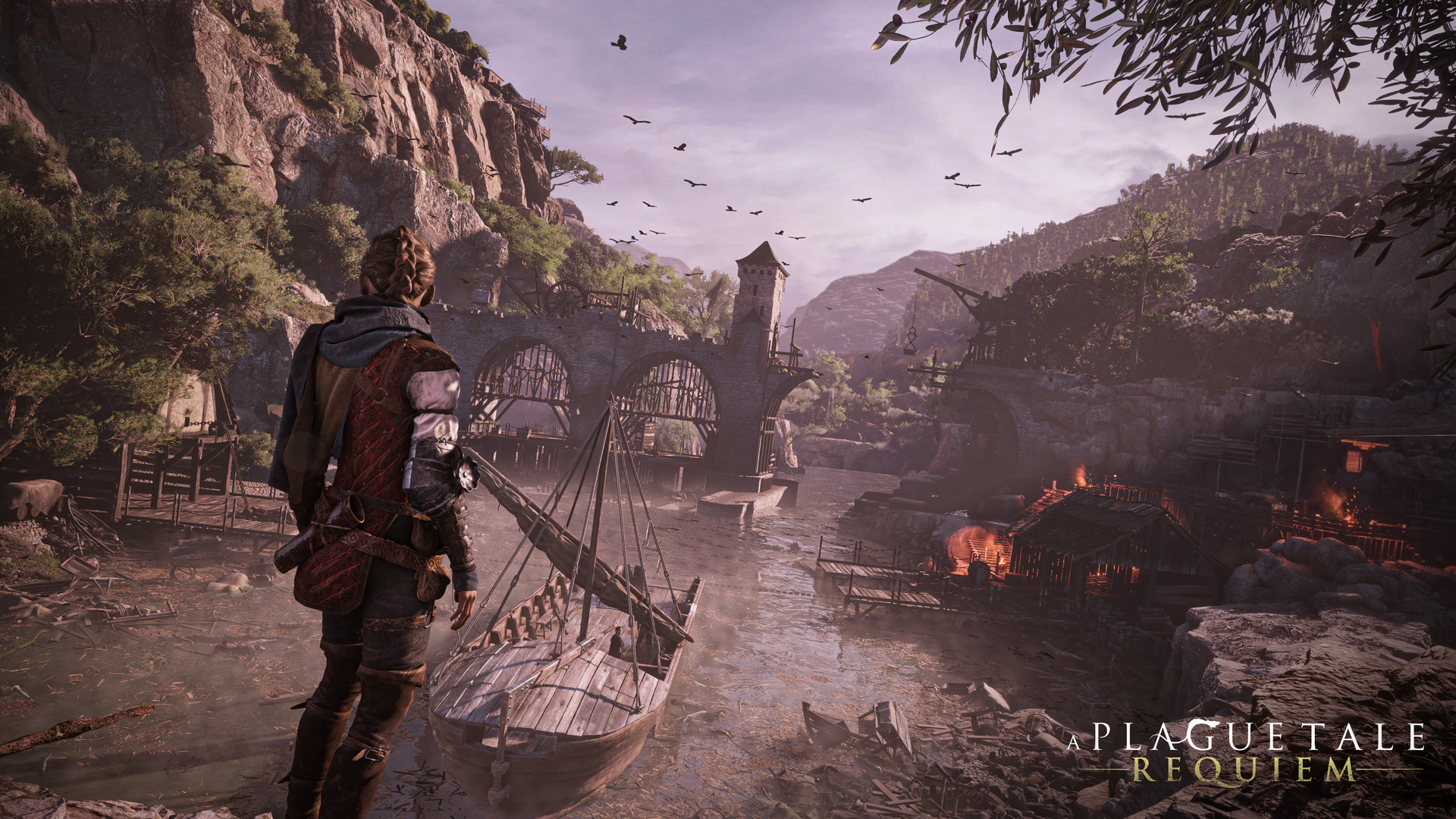
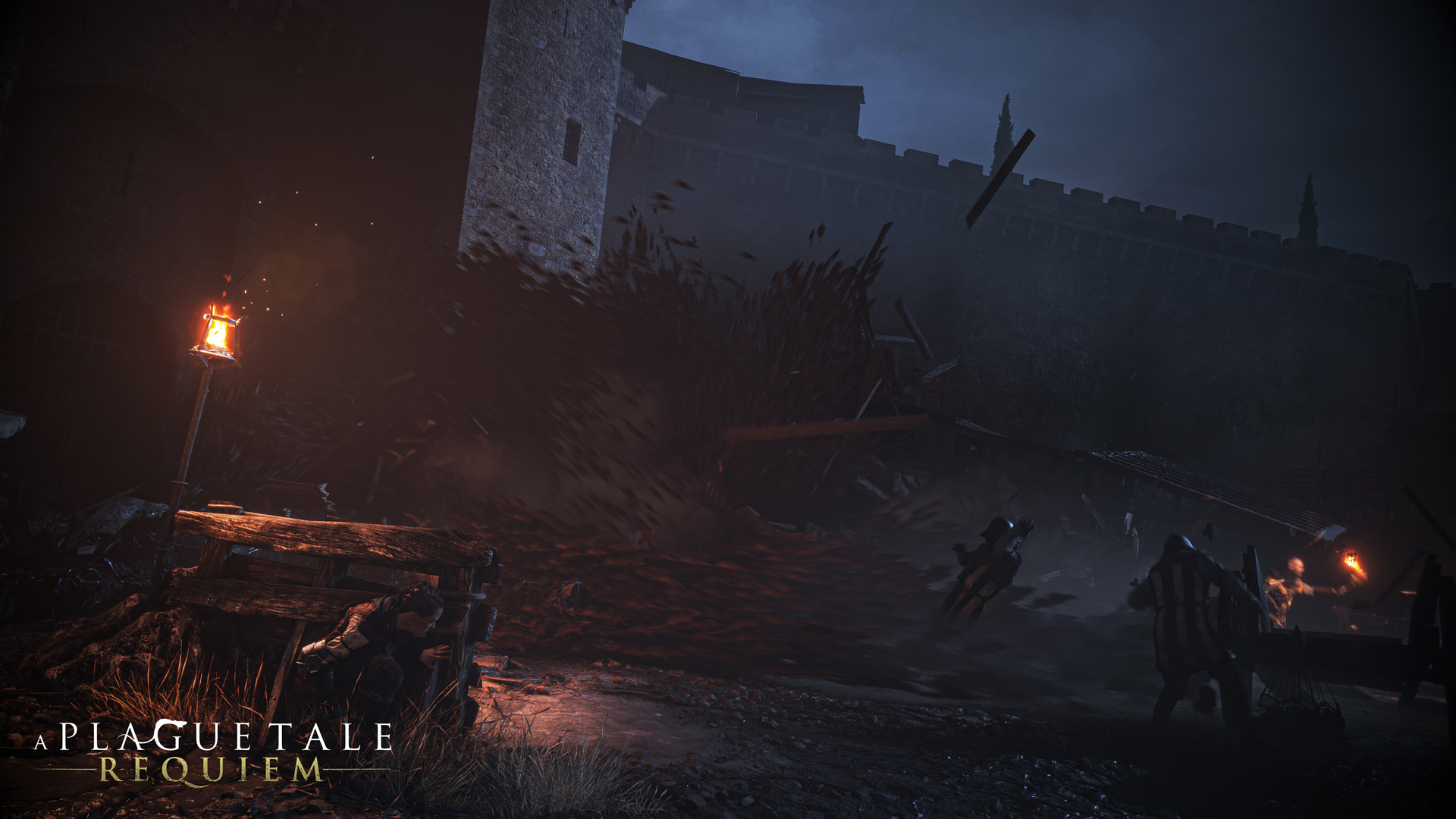
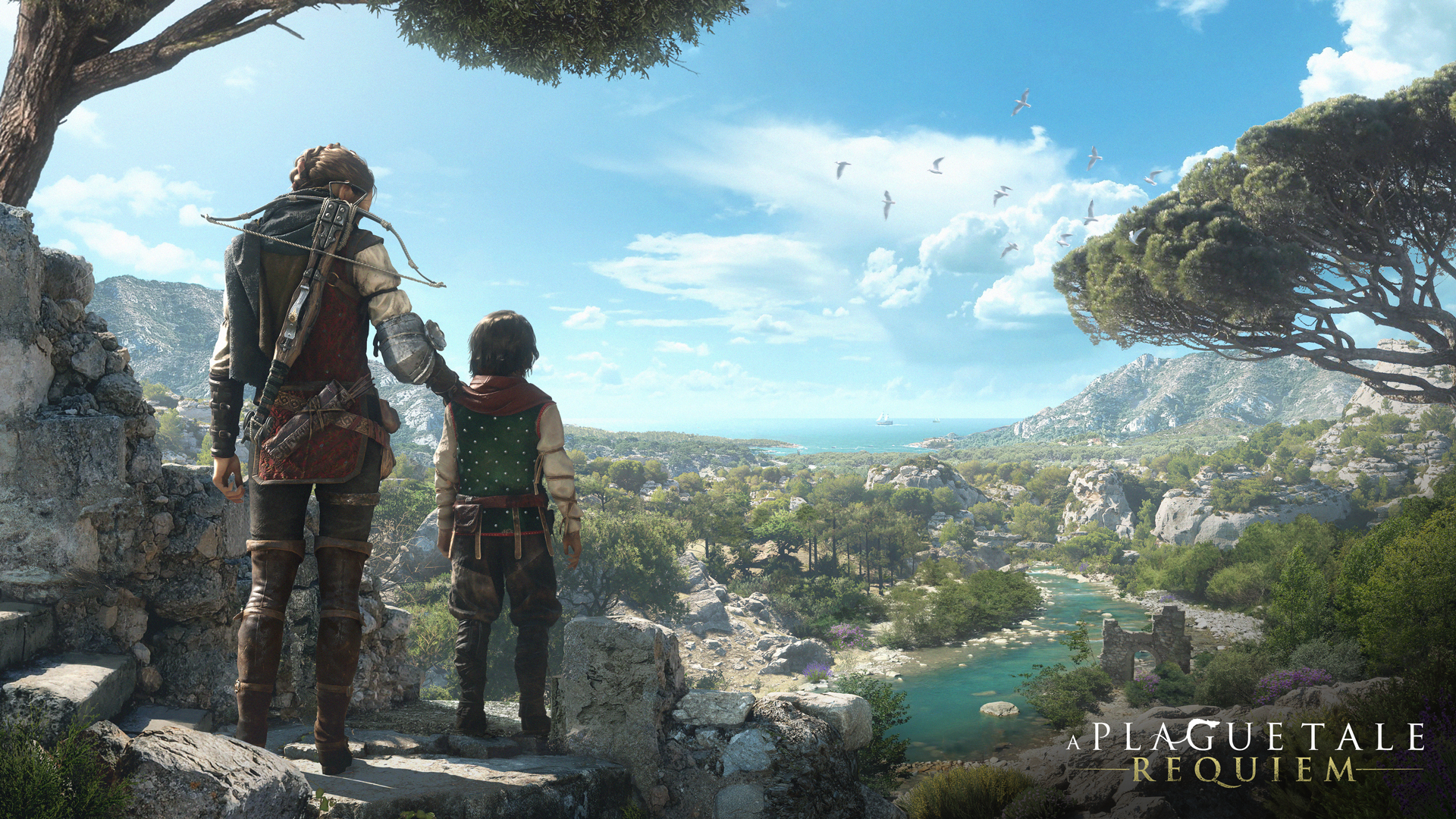
"The next-generation is about creating as much of a living world as you can"
Kevin Choteau, game director
"We've reached a point where graphics are already as good as they can be," Asobo game director Kevin Choteau told GamesRadar. "So the fight is somewhere else. The next-generation is about creating as much of a living world as you can. Where everything is moving and reacting to your actions."
A more systemic approach can only benefit A Plague Tale's stealth systems, which are front and centre of Requiem's trailers. There, we see Amicia take down unaware patrolmen, and hide Hugo under a cart as a guard passes by – the huge, spiked head of a flail dangling right before their eyes. In the previous game, a focus on ammo conservation led to a survival horror feel during these segments. But they rarely offered the freedom of approach available in the best dedicated stealth games. Hopefully, a more reactive world will grant us just that.
While I've dodged major spoilers for A Plague Tale: Innocence thus far, a certain amount of exposition is necessary to explain where we're at for the sequel. Young Hugo, it transpires, is the victim of an inherited curse connected to the plague. By the end of the first game, it allowed him to control and direct the rats – a turn of events that will surely inform the mechanics of Requiem.
Hugo's curse isn't a simple superpower, however. It's an illness that makes him a pariah, and leaves the two siblings unable to resume the peaceful lives they once lived. Asobo has said that Hugo's condition flares up again in Requiem; his powers are linked to his emotions and, given that his mother was in poor condition as Innocence ended, it's likely he's faced some terribly emotive triggers. In the aftermath, "death and destruction return in a flood of devouring rats", and Amicia and Hugo find desperate hope on an island linked to prophecy.
In other words, this second step into the Middle Ages will steer no closer to real history. Yet Asobo has a knack for keeping wild stories grounded. With A Plague Tale, it all comes back to the characterisation at the core: of Hugo, a young boy whose sickness has hoovered all of his mum's attention, and Amicia, the overlooked sister now forced to devote herself to his care too. That's where this complex dynamic began, and it'll be a treat to see how it's shaped by the south, in Requiem.
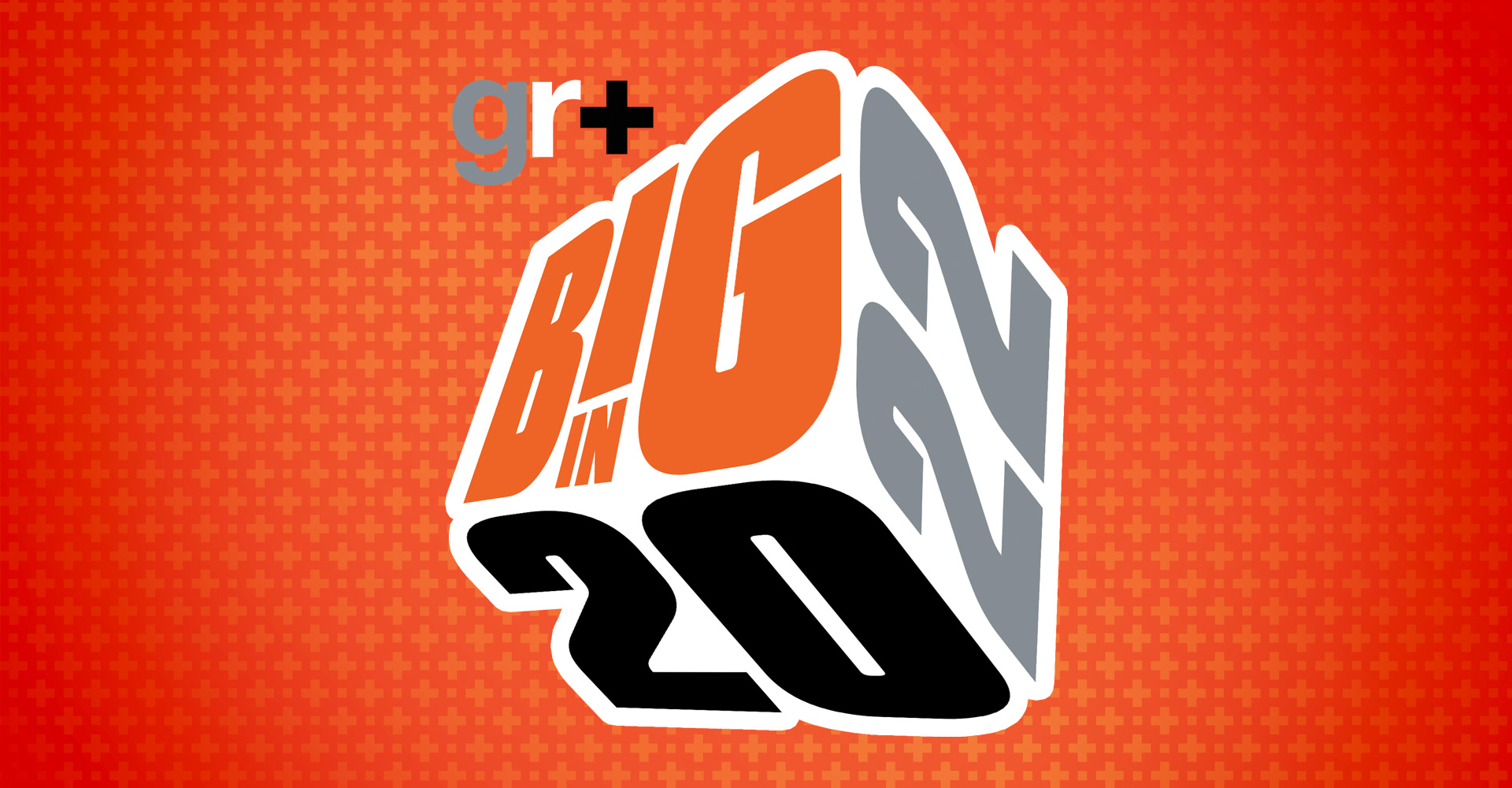
GamesRadar+ is diving deep into the biggest games of the new year with exclusive interviews, hands-on impressions, and in-depth editorials. For more, be sure to follow along with Big in 2022.
Jeremy is a freelance editor and writer with a decade’s experience across publications like GamesRadar, Rock Paper Shotgun, PC Gamer and Edge. He specialises in features and interviews, and gets a special kick out of meeting the word count exactly. He missed the golden age of magazines, so is making up for lost time while maintaining a healthy modern guilt over the paper waste. Jeremy was once told off by the director of Dishonored 2 for not having played Dishonored 2, an error he has since corrected.
